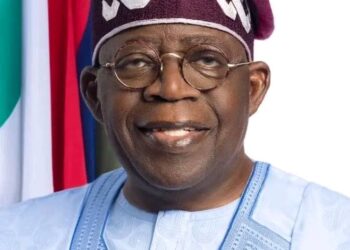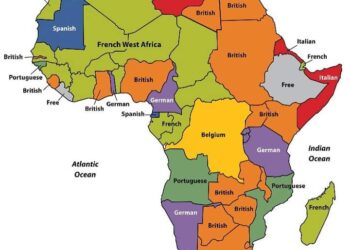Advanced Learners Dictionary calls the word smart as a verb or adjective and goes on to define it as looking clean and neat, well dressed in fashionable or formal clothes.
However, the Executive Secretary, Tertiary Education Trust Fund (TETFund) Dr. Abdullahi Bichi Baffa, has given another definition to what he calls SMART Education.
MARTIN PAUL abridges the theory.
Definition In his keynote address presented at the 21st World Congress on Information Technology (WCIT) held in Taipei, Taiwan, the Executive Secretary, Tertiary Education Trust Fund (TETFund), Dr.
Abdullahi Bichi Baffa, attempted a re-definition of the word SMART in relationship with education development.
His theory could not, definitively, be isolated from the ordinary meaning of the dictionary, but relatively nearest to each other’s functions and acceptability in literary usage.
He said: “With the rapid advances in information and communication Technology (ICT) and implications of tat ton national development, developing economies all over the world, are in a race to take advantages of the phenomenal improvements and great opportunities presented by these advances”.
This is where the literary meaning of the dictionary comes to interplay as dressing in fashionable clothes.
Baffa did not mince words, when he told the international gathering that in Africa, strides have been made by a number of countries, including Nigeria towards reforming some sectors in order to improve quality, efficiency and compete favourably on the global stage.
“It is fair to say that education is a major beneficiary in the race”.
The metaphor of this race is that literacy is no longer the ability to read and write, but the use of computers and its associated technologies in the contemporary world of evolving technologies.
Thus attaining that level of literacy is the ground zero in the quest to ICT WAVE-smart education.
ICT growth in a literate society Baffa exemplifies that “it is only literate society that can be enlightened and properly educated on” ICT components and “it is only enlightened and educated societies that grow humane socioeconomic culture and sound value system that is both organised and responsive, organized in the sense that it provides the correct quality infrastructures and institutions for the benefit of all and responsive in the sense that it is built around the yearnings and aspirations of the citizens”.
He further demonstrated that while the meaning of literacy has significantly changed with the advent of ICT, but can the same be said of teaching and learning, where teachers share space with students and connected with the technology called book.
In the past, though still in existence, reading and writing were not devoiced from the technologies known as books and inks and in the present dispensation, the two are connected with recording and playing back in ICT.
Conversely, Baffa deduced that the process remain the same, but using different tolls, media and speed.
Baffa Advanced Learners Dictionary calls the word smart as a verb or adjective and goes on to define it as looking clean and neat, well dressed in fashionable or formal clothes.
However, the Executive Secretary, Tertiary Education Trust Fund (TETFund) Dr.
Abdullahi Bichi Baffa, has given another definition to what he calls SMART Education.
MARTIN PAUL abridges the theory.
SMART Education In his theory, Baffa simply refers to SMART as Self-directed, Motivated, Adaptive, Resourceenriched, Technology-embedded.
This, according to him, bases it foundation on smart devices and intelligent technologies to improve learners’ quality of life-long learning with the involvement of curriculum content, pedagogy, environment, measurement and evaluation system.
Admissibly, SMART Education is “intended, in parts, to address the lack of personalisation of contents, lack of appeal to different learning styles of students, inability of teachers to play to their true strength and challenges of effective reforms at reasonable cost.
Whither Nigeria on ICT Without mincing words, Baffa enumerated that Nigeria is appreciative of the importance of ICT and its fundamental role in the building of knowledge-based economy, which was why the national policy on ICT was developed in 2000 with a vision to making it an engine for sustainable development.
“National Information Technology Development Agency NITDA) was established in 2001 to coordinate Nigeria’s ICT4D initiatives and efforts, guided by a strategic plan, which was developed with the support of the Unitd Nations Economic Commission for Africa (UNECA).
“We are quite mindful of the not-so-favourable statistics as far as computer and internet penetrations are concern.
The global report in both cases indicates that sub-Sahara Africa, including Nigeria, is not doing so well, where there are only about five computers to every 100 people”, Baffa noted.
In collaborating this, he said making effective use of ICT to improve education by providing functional and qualitative education at all levels, is one of the strategic goals and the ICT4D plans.
To ensure this, there must be provision of ICT infrastructure, design of curricula, development of contents and improving on pedagogy.
Others are development and deployment of SMART Education solutions, developing network infrastructure and connectivity and conducting ICT capacity building.
ICT Infrastructure Defending Nigeria’s level of ICT compliance, Baffa said at the higher education level, fully equipped data centres, learning centres and ICT centres are provided in addition to 10 NEPAD learning centres to support teaching, learning and research.
At the basic and secondary school levels, the Rural Information Technology Centres (RITC), provided by National Information Technology Agency (NITDA), in all the local councils, are complimenting the computing facilities provided at the school levels, just as there are numerous initiative geared towards the provision of ICT learning resources in schools, examples being interactive/smart boards, video projectors, laptops and tablets, among others.
Curriculum, Content and Pedagogy Computing is compulsory subject for primary school pupils in the country and we have reached advanced stage in making it mandatory for all secondary school students just as Mathematics and English Language and higher education institutions are already churning out teachers for schools.
SMART Education Solution Nigeria’s IT industry is one of the fastest growing.
There are many software solutions being designed, developed and marketed by indigenous and foreign technopreneurs.
Education solutions are among the most common from basic school management systems to game-learning applications up to more esoteric e-learning applications.
Nigeria’s Research and Education network (NgREN) is a World Bank project in which thousands of kilometers of fibre optic cable is connecting the country’s universities in the first phase and being expanded to connect all other higher institutions in the second phase to support research collaborations and improve access to internet.
Capacity Building A number of development partners are working with the government to support the targeted-training of teachers at the basic and secondary school levels.
Teachers of technical and vocational subjects get priority attention in this strive.
There are some few specific experiences, but let me confess ha we have only scratched the surface in our collective dream of making effective use of ICT to improve education.
It is, therefore, in order to begin to forecast the future, so that we can finetune our plan and take advantage of what is to come”.
The Hope Keying into the saying that no problem without solution, the indefatigable scholar assured that “with the growth of Open and Distance Learning (ODL), open courseware and online certifications and the increased in penetration of media devices and applications with increased awareness to immense power and flexibility of ICT, the future of ICT WAVESmart Education, in particular and the success of ICTAD in general, can only be brighter.
Thus, the meaning of literacy would no longer remain as ability to read and write, but one needs to be able to use computing devices as well.
In the very near future, one might not be able to read and write without using computing devices because activities would eventually be transferred to such devices.
“The traditional goals of education are not likely going to change.
Preparing students for responsible, productive adults’ life in the society will remain a core objective of education policy.
“Looking at the rate and extent of growth of technology, futurists, can only propose ideas that are likely going to mould what is to come in the next decades and how that will affect the delivery of education and services”.



